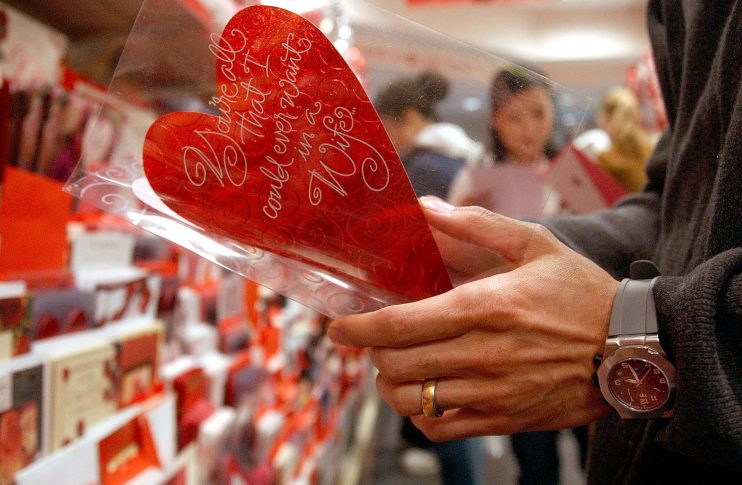Is Valentine’s Day just a marketing gimmick?

Is Valentine’s Day just a marketing gimmick?
Nicholas Mazzei, a corporate social responsibility adviser, says YES.
Love is a commodity in much demand, and there is little enough of it to go around.
The decline in the amount of sex men in the US are having has been linked to the rise of popularism and the election of Donald Trump. Loneliness in the UK is growing, while the use of dating apps is swiftly becoming the most popular way for people to meet.
Love, it seems, really is all we need — if only we can find it.
But Valentine’s Day and the commercial engine behind it is not the solution we need. The industrial-holiday complex loves Valentine’s Day, a way to spew out endless amounts of tat, cheap chocolate, crappy wine and tacky cards which we think we need to buy to prove our love for another (or others, if you’re so lucky).
It isn’t true. The meaning of Valentine’s Day is to share love. Do it with a phone call, a text, a whisper into your darling’s ear. Go tell someone you fancy that you, well, fancy them.
It’ll make their day and won’t cost you a penny.
Mark Davis, co-founder and creative director of property branding agency me&dave, says NO.
What’s wrong with a bit of good old-fashioned romance? There’s so much doom and gloom in the world right now, we could all use a little harmless light relief.
Okay, perhaps going for a pink-themed dinner for two is a bit on the gimmicky side, so why not put a spin on things and inject some humour?
Lots of restaurants are offering “free meals for third wheels” this Valentine’s Day, for example, for couples who are happy for a mate to crash their romantic date.
At our workplace, blank cards have been left in piles around the building, encouraging people to write messages and send them to anyone who has caught their eye. It’s a bit of flirty fun, a chance to spread some love and happiness (and make Sunida in accounts feel special).
If you take a creative approach and give things a bit of a twist, Valentine’s Day doesn’t have to be a “commercial con”. It can put a smile on people’s faces.
Main image credit: Getty